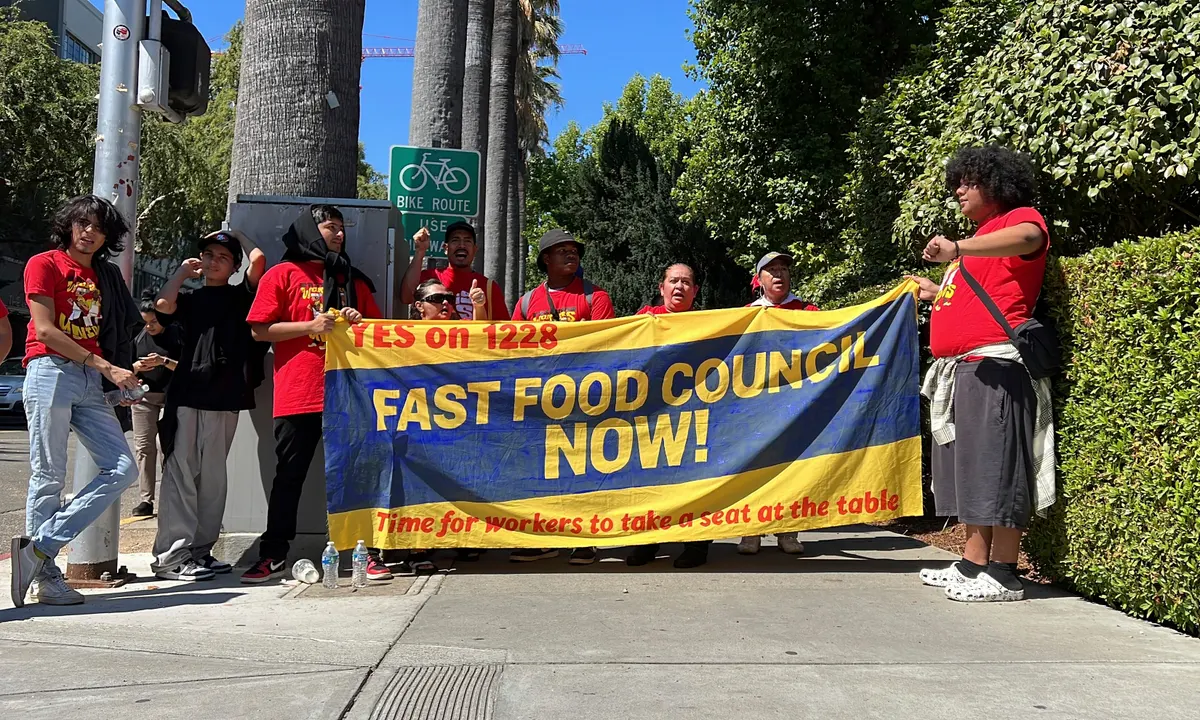In a groundbreaking development, California has enacted a law that will raise the minimum wage for fast food workers to $20 per hour starting on April 1, 2024. This move reflects the acknowledgment by the state’s Democratic leadership that a significant portion of the often overlooked fast food workforce serves as the primary earners for low-income households.
When this law takes effect, fast food workers in California will claim the highest guaranteed base salary within the industry. The state’s minimum wage for all other workers, currently at $15.50 per hour, already ranks among the highest in the United States.
Governor Gavin Newsom, a Democrat, signed this progressive law into effect amidst cheers and applause from workers and labor leaders at a gathering in Los Angeles. Governor Newsom explicitly challenged the conventional view that fast food jobs are primarily for teenagers seeking their first work experiences.
“That’s a romanticized version of a world that doesn’t exist,” Governor Newsom remarked, highlighting the significant contributions and sacrifices made by fast food workers and the need to stabilize the industry.
This significant legislative move reflects the considerable influence of labor unions in California, the most populous state in the nation. Labor unions have actively worked to organize fast food workers, striving to improve their wages and working conditions.
Additionally, this legislation marks a resolution, at least for the time being, to a dispute between labor unions and business groups regarding industry regulation. In exchange for higher wages, labor unions have withdrawn their efforts to hold fast food corporations responsible for the actions of independent franchise operators in California, a measure that could have disrupted the industry’s fundamental business model. In turn, the industry has agreed to remove a referendum concerning worker wages from the 2024 ballot.
Governor Newsom referred to this agreement as a significant development, mentioning that over 100 hours of negotiations were required to reach a consensus on the bills during the final weeks of the state’s legislative session.
Mary Kay Henry, president of the Service Employees International Union International, expressed that this law culminated a decade of work, including 450 strikes across the state in the past two years.
For many workers like Anneisha Williams, who works at a Jack in the Box restaurant in Inglewood and is a mother of six, this law signifies a substantial improvement in their lives. Williams emotionally shared her gratitude, mentioning her children’s support during her journey.
Governor Newsom’s decision to sign this law may help mend relations with organized labor, as he had faced criticism from unions for vetoing a separate bill aimed at safeguarding the jobs of truck drivers in the face of the rise of self-driving technology.
Looking ahead, the focus will now shift to another group of low-wage California workers eagerly awaiting their minimum wage increase. Lawmakers recently passed a separate bill that aims to gradually raise the minimum wage for healthcare workers to $25 per hour over the next decade. This wage hike would apply to most healthcare workers except doctors and nurses.
However, unlike the fast food wage increase, Governor Newsom has not yet indicated whether he will sign the bill for healthcare workers. The complexity of the issue stems from the state’s Medicaid program, which provides the primary source of revenue for many hospitals. The Newsom administration estimates that the wage increase could cost the state billions of dollars in increased payments to healthcare providers.
Supporters of the wage increase for healthcare workers argue that the state’s costs would be offset by a reduction in the number of people relying on publicly funded assistance programs, citing a study from the University of California-Berkeley Labor Center.



